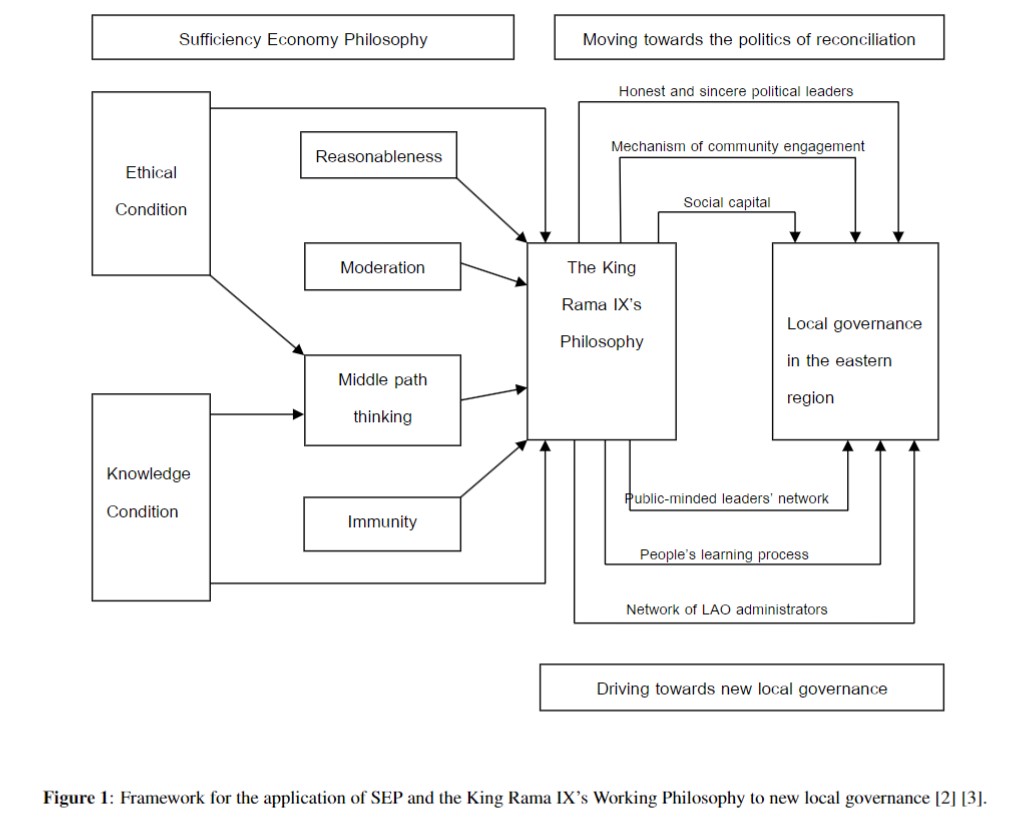Politics of reconciliation and new local governance based on Sufficiency Economy Philosophy and the King Rama IX’s Working Philosophy: Case studies of local administrative organizations in the eastern region of Thailand
Main Article Content
Abstract
The objectives of this research are to study the driving of local administrative organizations (LAO) in accordance with the Sufficiency Economy Philosophy (SEP), measure the level of SEP practices, and propose an appropriate model of reconciliation politics and local governance for the LAOs in the eastern region of Thailand. The research utilizes the integrated methodologies of case study, mixed-method, and lesson-learned method. The research results show that none of the 15 LAOs in this research fit in the very high level of SEP principles—or becoming a healthy workplace for all; nine of them occupy a high degree of SEP practices—or a level of understanding and being happy workplaces; four of them are at a moderate degree—or a level of being within the scope of the SEP and being sustainable workplaces; and, finally, the last two are not fit in the scope of SEP practices. Additionally, the research proposes five models for the LAOs’ political driving.
Article Details

This work is licensed under a Creative Commons Attribution-NonCommercial-NoDerivatives 4.0 International License.
References
C. Praditsil, et al., Critical survey of knowledge on decentralization in thailand, Research Fund (2018).
A. Pansen, et al., Synthesis of knowledge about sufficiency economy, in: Office of the Research Fund, Printing House,
Bangkok, 2006.
A. Pansen, Dharma sovereignty from the point of view of buddhism” in a society of dhamma sovereignty, Rangsit University,
Pathumthani, 2017.
C. Praditsil, et al., Research methodology, Faculty of Humanities and Social Sciences Rambhaibarni Rajabhat University,


